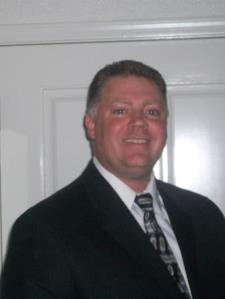 Post Classifieds
Post Classifieds
Routes Through Real Life: College as a Nontraditional Student

Photo by: Sydney Meyer
In the United States, the need for a college education has pretty much become a given. Most of the highest-paying jobs require a college degree, and the earlier you can obtain it, the more successful you can become. Inevitably, every high school senior will be asked, “So, where are you going to school next year?” Teenagers are pressured to pick a college and major, mapping out the rest of their lives before their brains are even fully formed.
However, this equation for entry to adulthood doesn’t apply to everyone. A few individuals have broken the mold, put off college a couple of years and learned how to live outside the realm of societal expectations. These are the students we call “nontraditional.”
“I think a year, or sometimes even just a semester, break helps,” says OU junior Bryce Oberg. “You can learn from things, be taught some things.”
The Association for Orientation, Transition, and Retention in Higher Education (NODA) defines a non-traditional student as “one who is not a first-time, full-time, straight out of high school … college student.”
According to this definition, Oberg is considered a non-traditional student.
Oberg took a year off from school, allowing a reprieve from the educational setting. Within this period of time, Oberg played music, coached and worked for a catering company.
“For me, I think it was just a time to … not do school. I didn’t like high school and transitioning to college was kind of the same.”
Oftentimes, students take a break from school to decide what they want to do in the future. Oberg saw the months following high school graduation as an opportune time to take a break before deciding to go full-force back into the educational environment.
“If you’re 18, coming out of high school straight into college, it’s okay to go for a semester and then decide to leave,” Oberg says.
Though nontraditional students are in the minority, the life experience gained through their journey through the “real world” provides a new and different perspective. A perspective that is quite different from a traditional student’s view.
Miranda Badeaux is a full-time student in her junior year studying business administration. In 2005, After her high school graduation, Badeaux decided to study at Neosho as a part-time student, while working part-time in retail. She worked her way up the ladder of employment until her résumé boasted several managerial positions. After a few of life’s twists, in 2014, Badeaux was a single mother with three children to support and two jobs that led to 80 hours of work a week.
Eventually, one of her jobs offered her a position that would allow her to quit the store, which meant she was back to working 50-55 hours a week, providing more opportunity to see her children. Badeaux worked for a while as senior account coordinator, and was then elevated to operations manager for a client in Olathe.
She lost her job in December of 2016, and, after applying to everywhere imaginable and with no job offers in sight, the conversation began — did she really need to go back to work? Her now-husband was working full-time at that point, and after thinking, discussing and praying about it, Badeaux decided to look into what it would take to enroll at OU.
After making the decision to continue her education, she realized that enrolling at Ottawa University was the best decision she could have made.
“Everything is working out — to a T. So I was like, ‘Okay, so I was supposed to not go to work, I was supposed to go back to school,’ which is giving me more time with my children, as opposed to working,” she says.
With five children (the youngest in kindergarten), her schedule can become pretty hectic, but Badeaux has been able to adjust her schedule to fit around her children. This has allowed her to spend time with them and go to class, while still getting in around about six hours of study-time a day.
“It’s just about managing my time schedule,” she says. “I have five kids, so my house is pretty much run like a tight ship, anyway.”
The role as a nontraditional student is not an easy one to take, which is something that Badeaux knows first-hand. Oftentimes, she says she finds herself relating more to her professors than the students.
“I felt very out-of-place for a while,” Badeaux says. “Everybody is about 10 years younger than I am. Like, I was in fifth grade when all of these kids were, like, started to be born.”
Oberg, like Badeaux, also had a bit of trouble transitioning from “the real world,” as it is so often called, back to an institution.
“I didn’t know what to expect, at first,” he says. “It’s not too different, it’s just, everything’s all up to you now. You earn the grade, you’re paying for it . … I don’t think I liked it then, but I like it now.”
Oberg says he sees his professors as colleagues, more mentors than teachers. This attitude highlights the collaborative communication that it takes to receive a University-level education, while maintaining the mindset of an independent adult. Oberg’s experiences have given him insight about what it takes to exist in life beyond education and he has been able to use the experiences to reframe his time as a college student.
“When you decide to go into the professional world after college, you’ll start to realize how easy it was in college, even though it might be pretty hard. … It’s not all fun and games,” Oberg says. “You have to be on top of whatever it is you decide to do.”
Badeaux had worries, at first, about being able to learn at the same level and pace as the younger students, but she soon found she had nothing to worry about. Her life experiences provided her with skills and abilities she wouldn’t have been able to master had she gone the more traditional student route.
“Manage your time wisely. Accept criticism, whether it’s good criticism or bad. Because real life doesn’t sugarcoat things,” Badeaux says, when asked if there is a lesson she would teach the traditional students at OU. “Life is just tough in general. I mean, you never know what is going to be thrown at you, and you can’t be prepared for everything. Life is a constant test.”
Though nontraditional students are still in the minority, in colleges across the nation they make up a large part of the student body. These students help provide yet another layer of diversity, applying a different perspective and presenting lessons on life that we can all benefit from.
Get Top Stories Delivered Weekly
More oucampus News Articles
- A Safe Holiday Season
- Winter Weather lookout for 2021-2022 season
- Makeup Tricks and Tips
- 5 ways to bring the holidays to your dorm room
Recent oucampus News Articles
Discuss This Article
MOST POPULAR OUCAMPUS

A Safe Holiday Season By Kylee Weber

OU Student experiences plane scare on way back to Ottawa By Brynden Grow

POTW - Logan Smoot By Brynden Grow
GET TOP STORIES DELIVERED WEEKLY
FOLLOW OUR NEWSPAPER
LATEST OUCAMPUS NEWS
RECENT OUCAMPUS CLASSIFIEDS
OUTSIDE THE LINES
- A Story To Sing About
- The Gap in Gum Care: Why Caring For Your Teeth’s F...
- Top Tips for Signature Scents and Better-Smelling Laundry
- A Dog Trainer’s Top Tips to Support Pets Through Life S...
- Clear the Air of Indoor Pollutants This Spring
- Stroke & Dementia in Black Men: Tips for Staying Healthy...
- Hispanics and African Americans at Higher Risk for Eye...
- African Americans at Higher Risk for Eye Disease
- Infinity Kings: Final Book In A Favorite Fantasy Series
- What You Need To Know About Keratoconus and the iLink...
FROM AROUND THE WEB
- 7 Reasons Renting an RV Should Be On Every Family’s S...
- Don’t Let Diabetes Shortchange Your Golden Years
- No Child is Forgotten By Marine Toys for Tots
- Sweeten Your Springtime Salads With Healthy Chilean Grapes
- Young Author Translates 4,000-Year-Old Text to Reveal...
- Keeping Cool and Energy-efficient Amid America’s “...
- Addressing Sarcopenia with a Healthy Diet
- Subway’s New Wraps Elevate Eating on the Go
- Family Teacher Conference Topics Beyond Academics
- Youth Take Down Tobacco
COLLEGE PRESS RELEASES
- Shoff Promotions Comic Book & Sports Card Show
- Semiconductor Research Corp unveils 2024 Research Call, $13.8M Funding
- Charles River Associates Opens Second Scholarship Cycle, Expands to the UK
- BLUMHOUSE AND AMC THEATRES LAUNCH FIRST-EVER HALFWAY TO HALLOWEEN FILM FESTIVAL
- THE GEN Z IMPERATIVE: LISTEN TO FEELINGS AND GIVE GEN Z A VOICE













